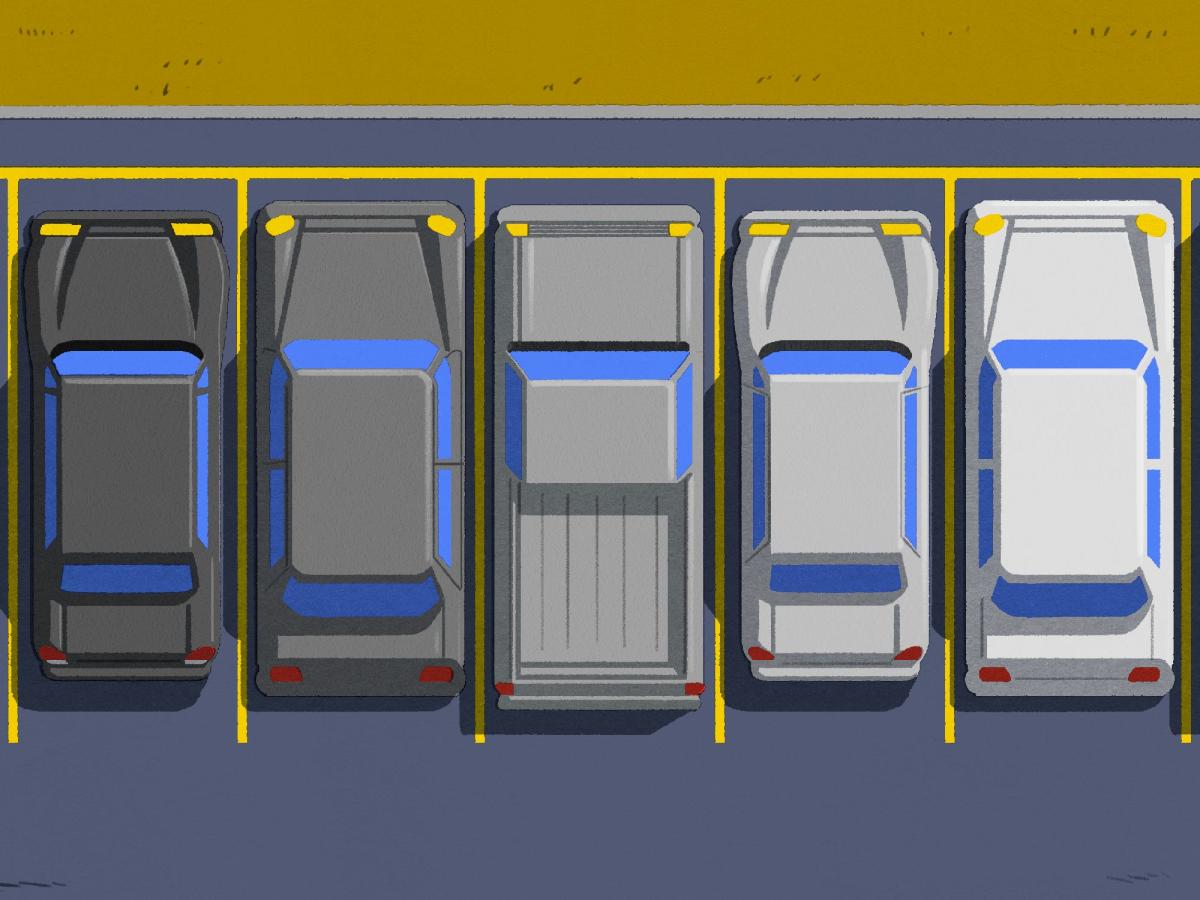
It feels like a distant memory, but once upon a time America’s carmakers produced vehicles in a veritable rainbow of colors. As recently as 2005, more than half of all automobiles on the road were painted a color other than black, white, silver, or gray. Some of the tints even sported names straight out of a Hot Wheels collection: Tangerine Scream, Go Green, Plum Crazy.
Explore the United States of Automobiles
• See where in America your vehicle is most popular
• Check out the cars your neighbors love most
• What our rides reveal about our politics
But over the past quarter century, the range of hues has narrowed dramatically. Today, less than 20% of vehicles listed in our database of 1.7 million cars are a color other than black, white, silver, or gray. In an age of infinite digital luminosity, America’s roads have become as dull and washed out as a Civil War daguerreotype.
The culprit? Corporate cost cutting. As profit margins got tighter, automakers went looking for ways to make assembly lines run faster and cheaper. “Less is more,” says Ivan Drury, the director of insights at Edmunds, one of the leading guides for car shoppers. “Simplifying the production process — with fewer trim options and fewer paint options — is always going to be a winner.”
Detroit’s paint palette dried up even more after the global financial crisis of 2008, which forced GM and Chrysler to file for bankruptcy. Today, car colors are going the way of checked airline bags — you pay extra for something you used to get free. “They see it as a way to make money,” Drury says of carmakers. “Some colors are reserved for the higher trim level.” As our database reveals, the more luxurious the car, the more colorful things get. Only 12% of Chevys come in a color, compared with 44% of Lamborghinis. Offering fewer options to average car buyers — and more to the wealthy — enables automakers to bask in the color they care about most: green.
Paint by numbers
Text by Mark Healy, founder of Flipturn Creative Studios. Data by Andrew Thompson, creator of Components, a cultural research project. Graphics by designer Dan DeLorenzo, data graphics fellow Kim Nguyen, and data visualization director Randy Yeip.
Read the original article on Business Insider


Leave a Comment